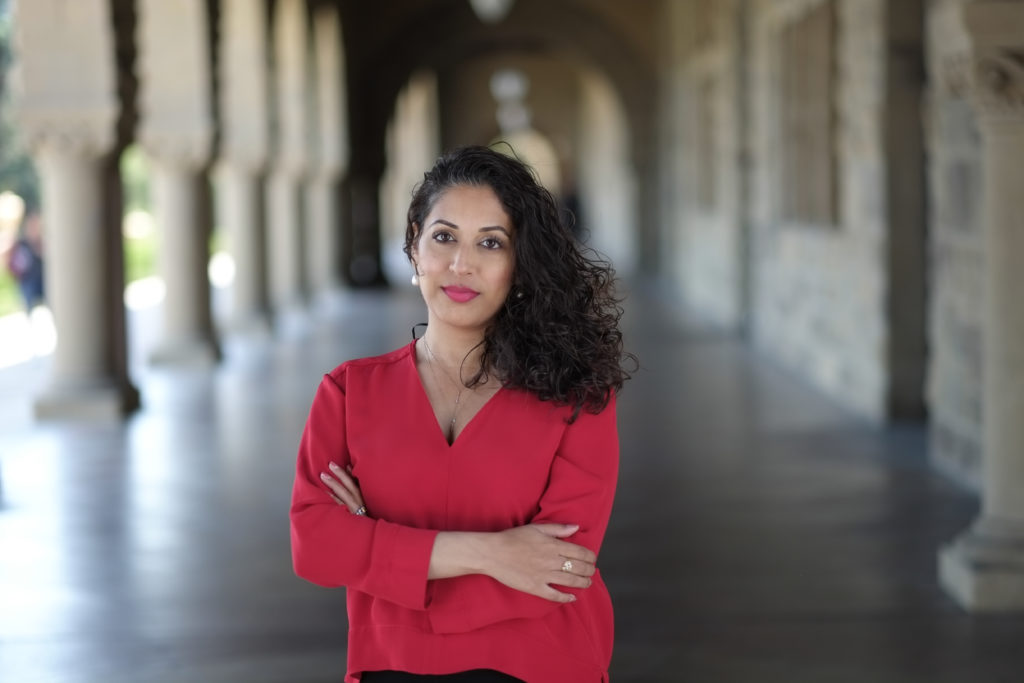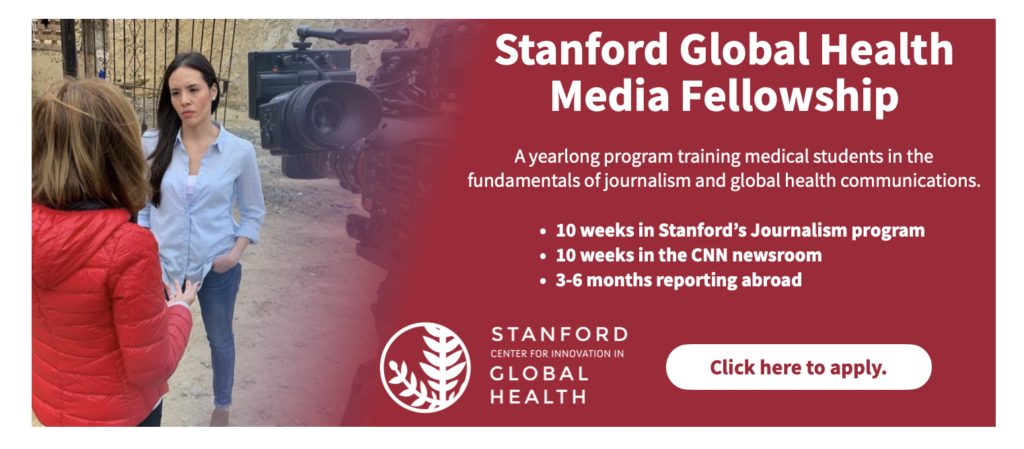Published: 01/22/2021
Dear Global Health Colleagues,
The medical community has a persistent problem: we don’t know how to tell our stories.
Global health in particular suffers from poor communication — our stories are inherently remote, complex, and diverse. Yet, they are not immune from relatability, they simply require a skillset too many of us do not possess. A skilled global health storyteller like Dr. Paul Farmer (who will join us Feb 3rd in a conversation about his career and new book Fevers, Feuds, and Diamonds) can impact so many lives.
Why does communicating global health matter? This question is easier than ever to answer. If we in the global and public health community were adept communicators and better able to convey the importance of masking and social distancing as preventive measures against COVID-19, perhaps the numbers of people dying would be lower. With better communication the pandemic simulation conducted by HHS in 2019 might have been taken more seriously by Congress and yielded reforms; perhaps the current vaccine hesitancy polls, which still reports a dismal 39% of Americans refusing the vaccine, would show a more promising picture.
We in the global health community have perspectives and stories that, when delivered to the right audience in the right way, have the power to save lives. It is why I chose to start the Global Health Media Fellowship in 2011 — the only such one of its kind — and it is why I support the great efforts of our skilled medical communicators, like Faculty Fellow Dr. Seema Yasmin, whose trainings and research in health communication is also the subject of our feature article below, or Faculty Fellow Dr. Maya Adam, who has been creating globally accessible and strategic videos on public health measures.
While watching a conspiracy-fueled mob storm our nation’s capital this past week, I thought back to the political upheavals and shaky elections I had sometimes been caught in during work overseas. It was troubling to see genuinely concerned messages come in from my colleagues and friends living in countries that have experienced violent coupes and insurrections. I hope that these current events punctuate a grim chapter in American history. However to turn a new page, we must acknowledge our roles not only as Americans but as citizens of the world. No matter how high we build our walls, borders are a fiction — our words, our actions, and our leadership all have global implications. To pretend otherwise jeopardizes the health of people everywhere.
In solidarity and with hopes for a less chaotic world,
Michele Barry
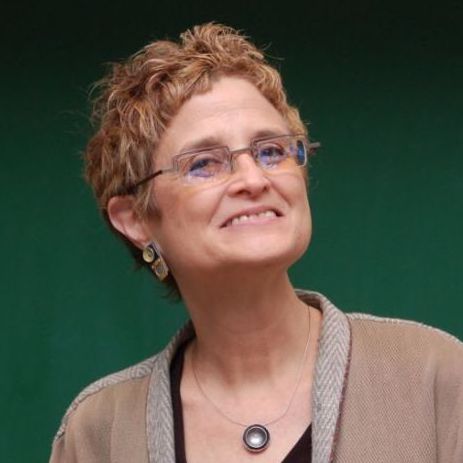
Drs. Ben and A. Jess Shenson Professor of Medicine and Tropical Diseases
Director of the Center for Innovation in Global Health
Senior Associate Dean for Global Health, Stanford University
Upcoming Events
The 2021 Global Health Research Convening
Hosted by the Center for Innovation in Global Health
Thursday, Jan 28, 2021 | 9:00am PST
Click here for registration and more info.
The 7th Annual Stanford Global Health Research Convening will be held virtually on January 28, 2021. The convening brings together students, faculty and researchers working in global health.This year’s theme is “Research During Pandemics.” While keynote speakers will present on this theme, the Convening welcomes research from all areas of global health. Abstracts will be selected for posters and verbal presentations. The convening aims to foster discussion among researchers across a variety of disciplines whose work impacts global health. We look for convening participants to share their ideas and experience, and to explore new potential collaborations and opportunities for student engagement. Prior convening have attracted broad participation from engineers, economists, earth scientists ecologists, mathematical modelers, and physician scientists.
Epidemic Illusions: On the Coloniality of Global Public Healthwith Dr. Eugene Richardson
The Center for African Studies, Stanford Humanities Center, Center for Innovation in Global Health, & the Department of Anthropology
Wednesday, Jan 27, 2021 | 12:00-1:00pm PST
Click here for registration.
A book discussion with Dr. Eugene Richardson, Assistant Professor of Global Health & Social Medicine at Harvard Medical School, about his new book, Epidemic Illusions. “In Epidemic Illusions (2020) Eugene Richardson, a physician and an anthropologist, contends that public health practices–from epidemiological modeling and outbreak containment to Big Data and causal inference–play an essential role in perpetuating a range of globalinequities. Drawing on postcolonial theory, medical anthropology, and critical science studies, Richardson demonstrates the ways in which the flagship discipline of epidemiology has been shaped by the colonial, racist, and patriarchal system that had its inception in 1492.” -Penguin Random House. We hope you’ll join us for an enlightening and engaging discussion of this book.
Featured Article
When Doctors Tell Their Stories
Stanford Global Health, Stanford Journalism, and CNN Health have joined forces to bring global health stories to the masses. Through Stanford’s Global Health Media Fellowship, we have equipped doctors with the tools to scale impact beyond the clinic. This is their story. Read the article here.
What We’re Reading
Global Health Communication and Advocacy
- Beyond Politics — Promoting Covid-19 Vaccination in the United States (1/6/21): “History has shown that ‘if you build it, they will come’ makes a terrible marketing plan” – a wise assessment of potential communication plans for vaccine uptake from Faculty Fellow Dr. Kevin Schulman.
- These doctors risked their careers to expose the dangers children face in immigrant family detention (5/23/20): For global health practitioners, speaking out and telling stories is a powerful and dangerous tool. Stanford Global Health Media Fellow Dr. Edith Bracho-Sanchez tells the story of two brave doctors who put their work in the spotlight.
- An entertainment-education approach to prevent COVID-19 spread (12/15/20): Global Health Faculty Fellow Maya Adam is trying to change behavior across cultures with entertainment seeded with important public health messaging.
- America Dissected (1/12/21): In this podcast, Global Health Faculty Fellow Dr. Seema Yasmin reveals how misinformation fueled the coronavirus epidemic and the recent violent events at Congress.
Global COVID-19 Trends
- Global Health Education in the Time of COVID-19 (12/29/20): A commentary I co-authored examining how the pandemic is an opportunity to restructure many inequitable educational relationships, address outdated notions of supremacy, and further decolonize global health.
- How Nine Covid-19 Vaccines Work (1/8/21): Much vaccine hesitancy is due to misguided understandings of how vaccines function in the body. This accessible breakdown of how different vaccines function is highly accessible to a layman audience.
- Vaccinating equitably ‘saves lives, stabilizes health systems’ – WHO chief (1/8/21): I am relieved to learn that two billion doses of “safe and effective COVID-19 vaccines” have been secured by the international equitable vaccine alliance COVAX.
Regional and Country-Specific COVID-19 News
- Iran’s Khamenei bans the import of U.S. and U.K. coronavirus vaccines (1/8/21): Soured political relations can have devastating health consequences, even without outright conflict.
- Japan declares state of emergency in Tokyo, paying price for coronavirus complacency(1/7/21): Japan, once a shining example of an effective and rapid pandemic response, now demonstrates the long term effects of incomplete public health measures.
- Afghan Mothers Struggle To Feed Their Children In The Pandemic (1/6/21): Pandemic food shortages are here. In Afghanistan, a dire situation is emerging.
Stanford Global Health Faculty Fellow Feature
5 Questions with Dr. Seema Yasmin on building trust with better health communication
Global Health Faculty Fellow Dr. Seema Yasmin is shaking up the status quo in science and health communication, deploying and studying strategies for effectively conveying information to the underserved communities most impacted by medical misinformation. Read the article here.
Note from our Colleagues in the Field
Digital Medic in South Africa
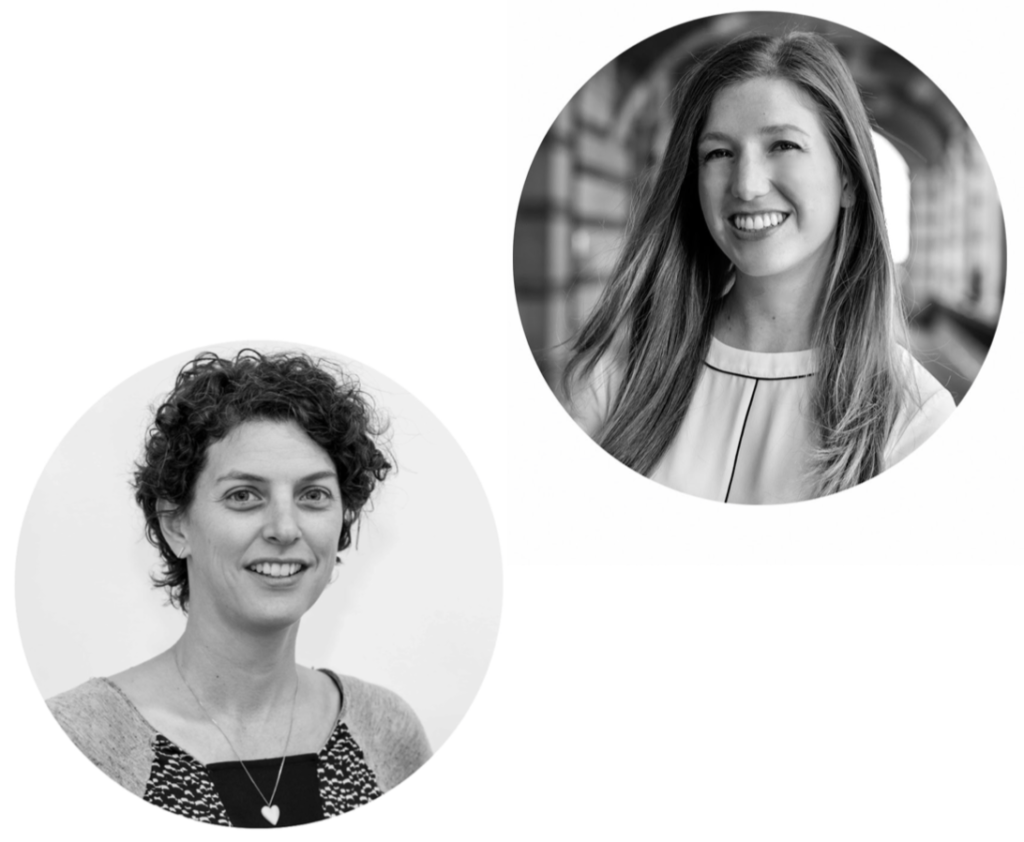
| Kira-Leigh Kuhnert, Digital Medic South Africa Program Manager Katherine Sziraczky, Digital Medic Engagement Lead |
At the onset of the COVID-19 pandemic, the South African government instituted one of the most severe lockdowns seen globally. This measure was put in place to ensure that health systems and other disaster management agencies were able to adequately prepare rapid and effective emergency responses.
As we know, access to credible health information is crucial to curbing any health crisis. Through local partners in South Africa, Stanford Center for Health Education’s Digital Medic program has provided frontline health workers in the Western and Eastern Cape Provinces with essential information to improve their quality of care for patients with COVID-19 and equip them with engaging tools for public health education.
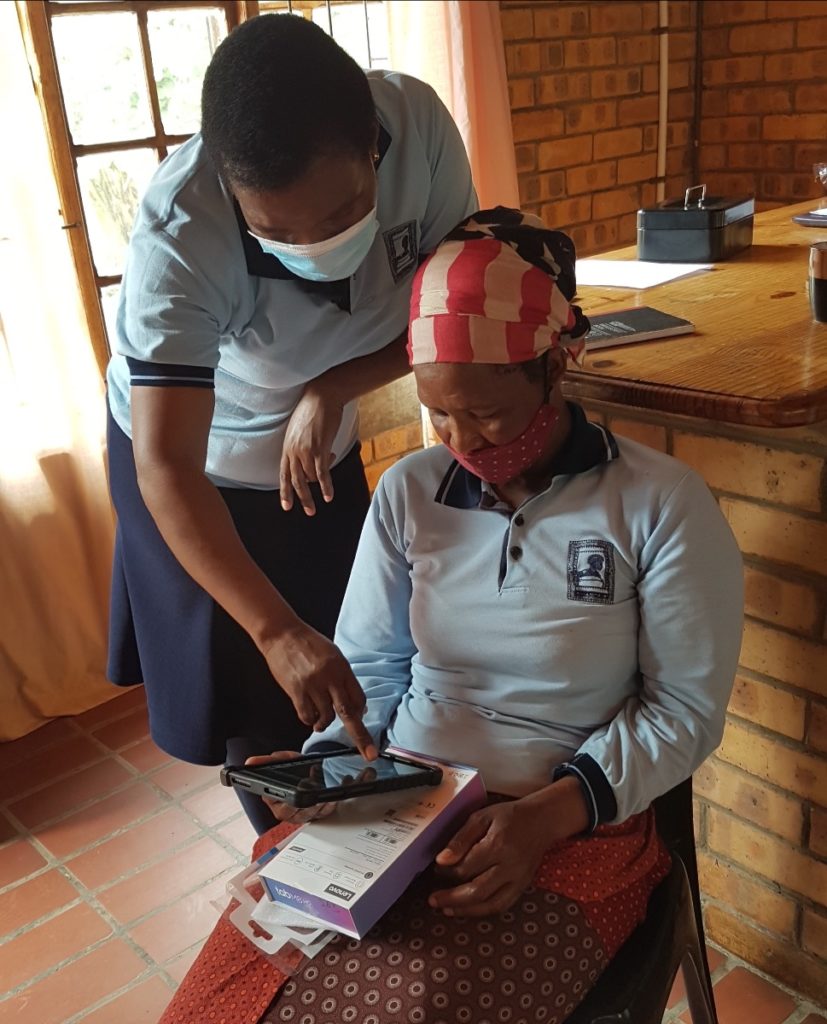
In a needs-finding survey conducted by Digital Medic, initial information challenges highlighted by local organisations in South Africa included access to health information in local languages and information seen as coming from a trusted source. Digital Medic addressed these challenges through our adaptable health education content developed as part of our COVID-19 toolkit. Content is available in six South African languages and organisations can add their logos to visual assets that can be downloaded and distributed, ensuring that credible health information is shared in the community through a trusted local organisation.
Community health workers have been able to use the offline function of the Digital Medic app to share health information in difficult-to-reach, low-resourced locations where physical access is a challenge, let alone internet. Through the use of tablets or smartphones, our digital health information has been shared in a safe way that aligns with national pandemic restrictions on physical distancing.
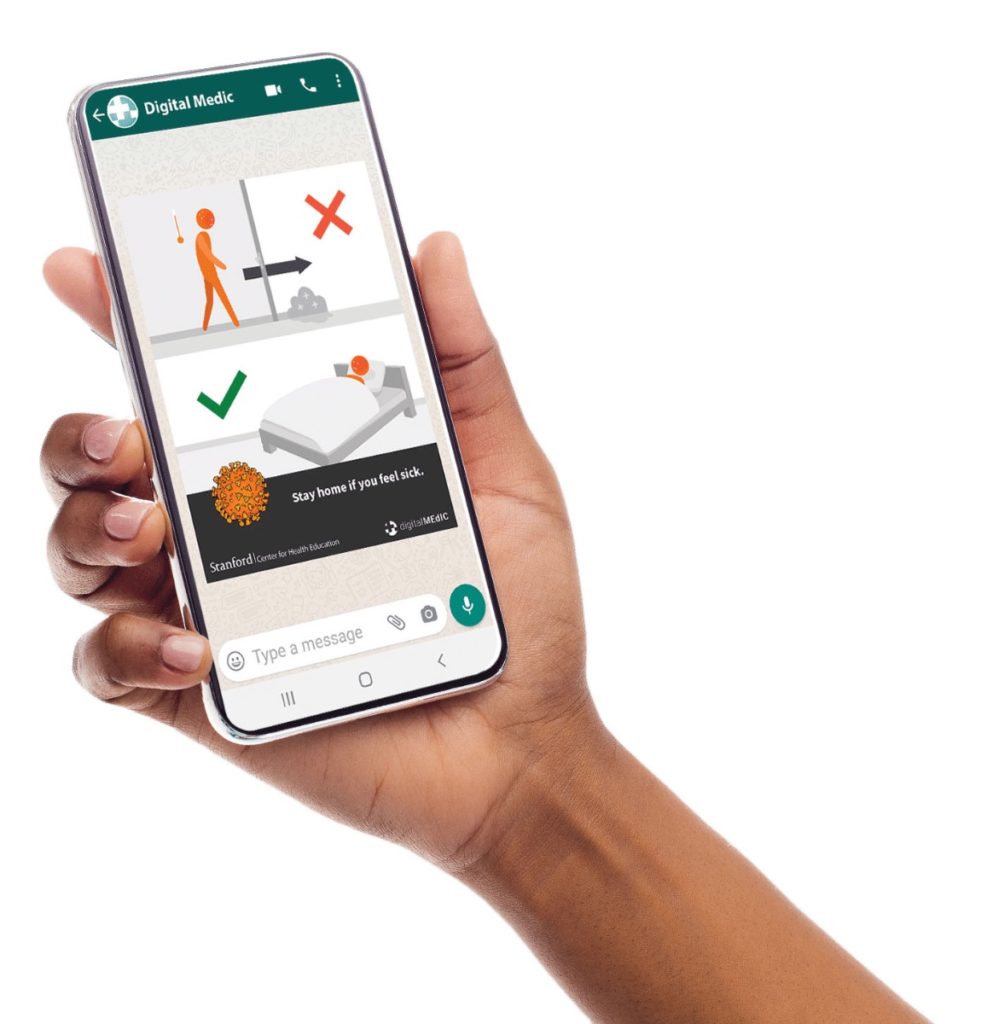
In addition to community health workers using our generalized, shareable health information, doctors at both a rural Eastern Cape Province hospital and a tertiary State hospital in the Northern Cape Province have taken our COVID-19 Training for Healthcare Workers course. With modules covering key topics such as symptoms in COVID-19 patients, ventilator management, and conducting virtual telehealth visits, this course relays important COVID safety messages in a short, engaging class format.
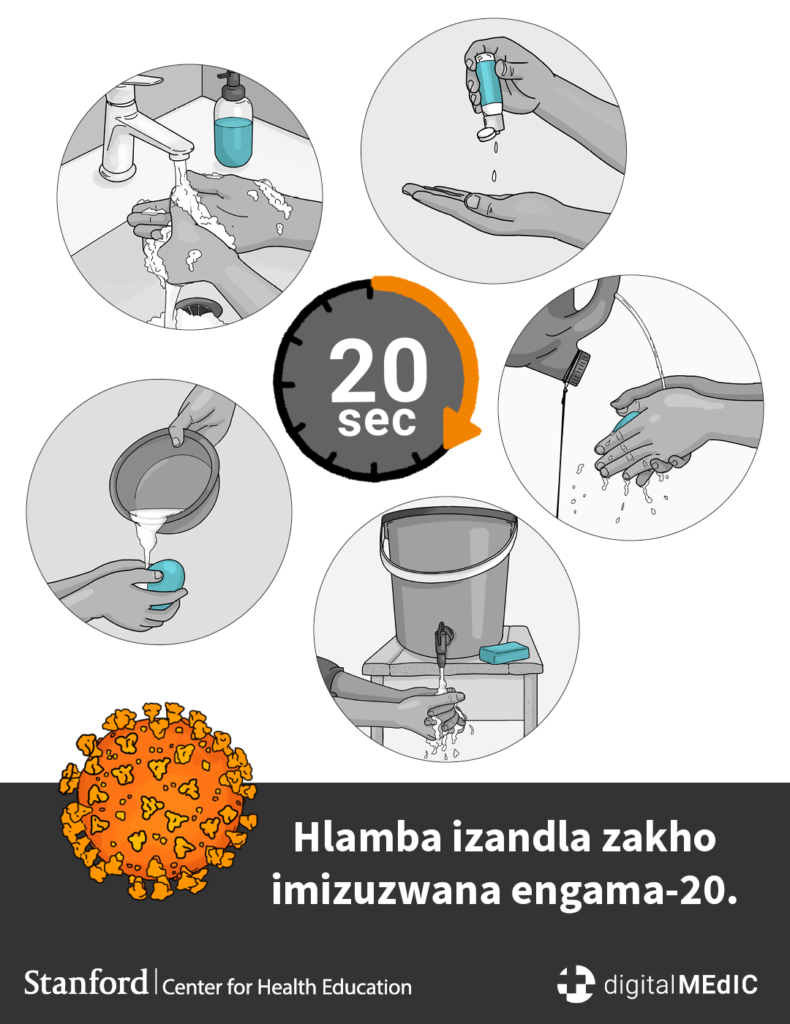
Continue to follow our work in South Africa and around the world as we create compelling global health content that meets local needs.
To Learn more, please visit https://digitalmedic.stanford.edu.
Stanford Global Health Opportunities
The 2021-22 Global Health Media Fellowship
Stanford’s Center for Innovation in Global Health is proud to announce that this year’s application for the Stanford Global Health Media Fellowship is now open. Fellows will be chosen from a national pool of U.S. medical students committed to a career in global health. This opportunity provides medical students with 12 months of practical training in the fundamentals of journalism, communications, and global health reporting on a variety of media platforms, including print, online, broadcast, social and digital media. Applications are being accepted now and the deadline is January 31, 2021. Learn more and apply here.
The Bay Area Global Health Innovation Challenge
The Bay Area Global Health Innovation Challenge is a competition hosted by the University of California, Berkeley, Stanford University, and the HealthRoots Foundation for Global Health in partnership with UCSF, UC Davis, and the Bay Area Global Health Alliance. We offer student teams from all schools, disciplines, and degree levels (undergrad through post-doc) the opportunity to present their ideas for low-cost, high-impact, and scalable global health solutions to world leaders in health, tech, design, and impact investing. All finalist teams receive powerful mentorship and development opportunities from expert judges, mentors, and advisors— and one team goes home with the $10,000 HealthRoots Grand Prize. Applications are being accepted now and the deadline is December 15, 2020. Learn more and apply here.
2021 CARE Summer Research Immersion (CARE-SRI)
The CARE-SRI Program is an immersive 8-week summer internship in Data Science and Vulnerable Populations for undergraduate and graduate students, with a focus in Asian Health. This exceptional program leverages the unique aspects of Stanford’s world-class research, technology, and medical infrastructure to train learners to become superb population science researchers. Students will carry out two research projects throughout the summer: 1) a large database research focused on precision medicine, and 2) a specific mentored research projects with individual faculty. Most students are predicted to submit 1-2 manuscripts for publication to a peer reviewed journal along with their team members. All students are welcome to apply (no Stanford affiliation is required) and applications are due by February 5, 2021. Learn more here.
Resources
COVID-19 Training for Healthcare Workers, Now Available in Spanish
In July 2020, the Stanford Center for Health Education’s Digital Medic program and Stanford Emergency Medicine International launched a COVID-19 Training Course for Healthcare Workers. This short series of learning modules cover high-priority topics for rapid emergency response, such as recognizing symptoms in patients with COVID-19, preventing transmission, managing ventilators, and conducting virtual telehealth visits. This course is available for free through Coursera, edX, and YouTube and offers certification. Over 100,000 learners have accessed the English version of the course so far, and it is now available in spanish.
Global palliative care course now available to all from Stanford experts
Palliative Care Always is a specialization for health care practitioners, patients and caregivers. This specialization has been designed to demonstrate how palliative medicine integrates with patient care, and to help you develop primary palliative care skills. Over five online courses, you will develop skills in symptom management, goals of care and effective communication to improve the quality of life for patients and families suffering with serious illness. Our hope is that you feel increasingly equipped to support the diverse needs of your patients and your own needs.
Geo-specific data tool for Global Health research
POKET is a social-enterprise part of MIT’s SOLVE program in Boston. Their platform is used by researchers and NGOs for crowdsourcing geo-specific insights and mapping data. The solution can be used to map anything from SMEs, healthcare outlets, observations about COVID-19 public health compliance (ex. are store owners wearing masks?), etc., with a focus on emerging countries (in Africa, South [East] Asia, South America, LATAM, etc.) It’s also a great way to create work for young people in the emerging world, as youth unemployment is at an all-time high during COVID-19. The team is also an official partner of ESRI, based out of UofT’s Innovation Lab in Canada, and presented at the UNGA for their impact on SDGs 8 (Decent Work) and 9 (Infrastructure/Innovation). The team is hoping to connect with researchers and NGOs whose research efforts abroad might benefit from a mapping/geo-specific component, or any crowdsourcing opportunity as well.
Online List of COVID-19 Funding Opportunities
Stanford’s Research Management Group has created a website that provides a complete listing of funding opportunities for COVID-19 research available to all researchers (not just at Stanford).


